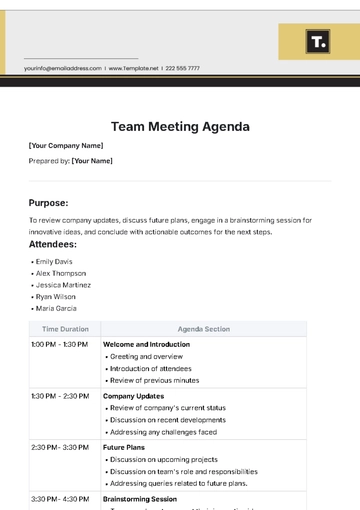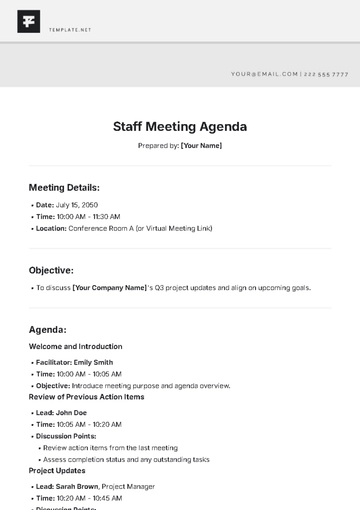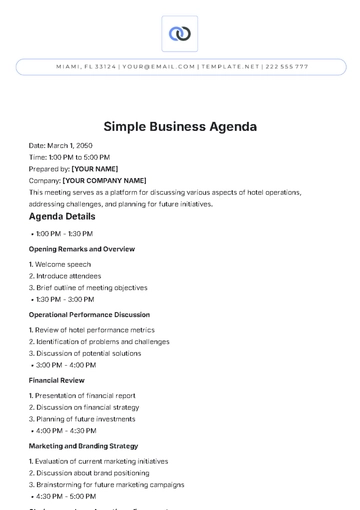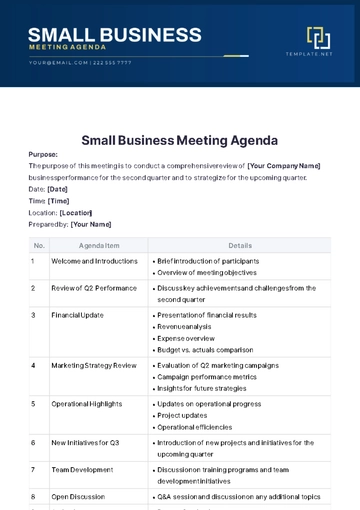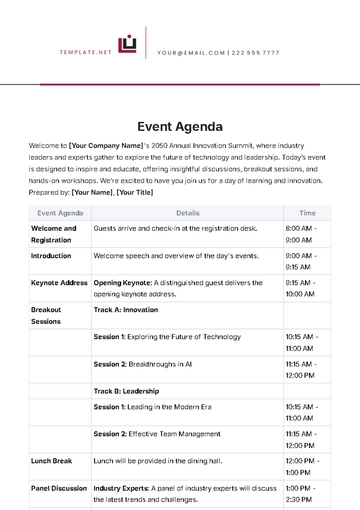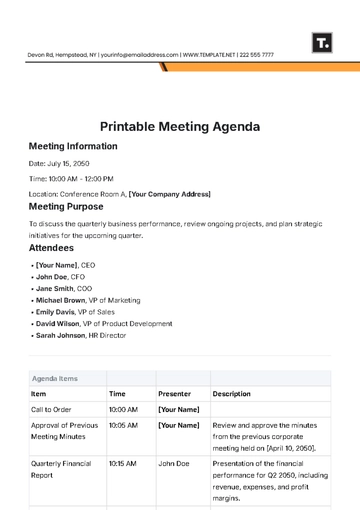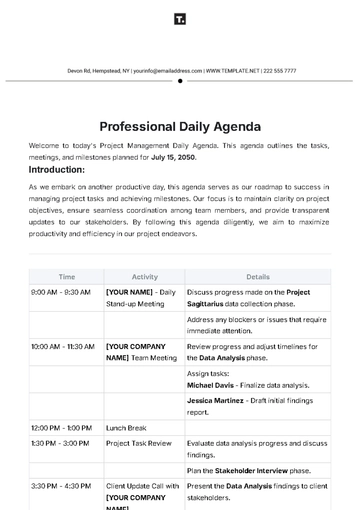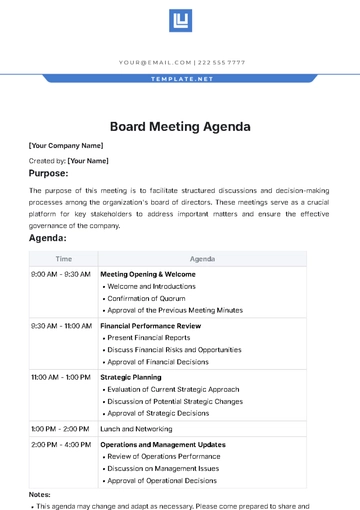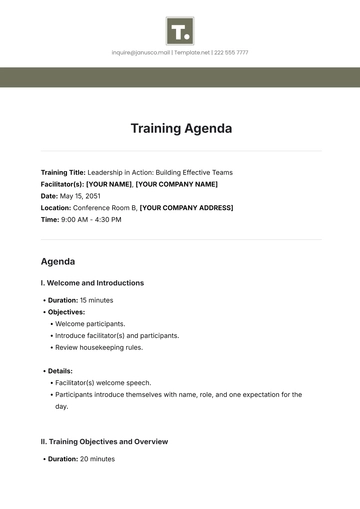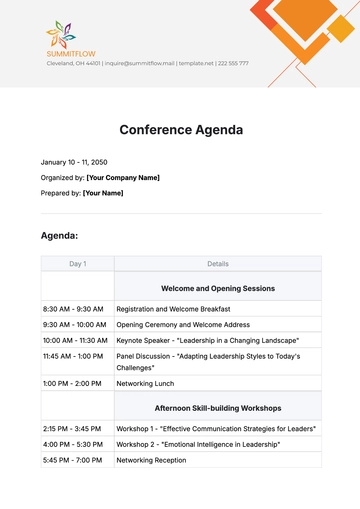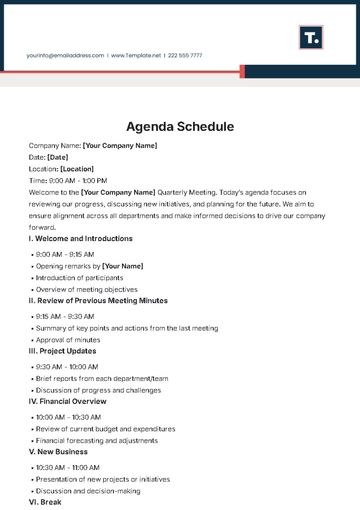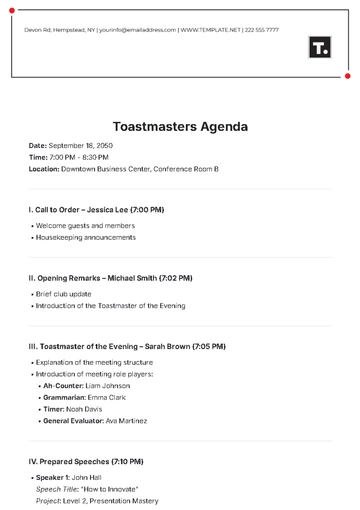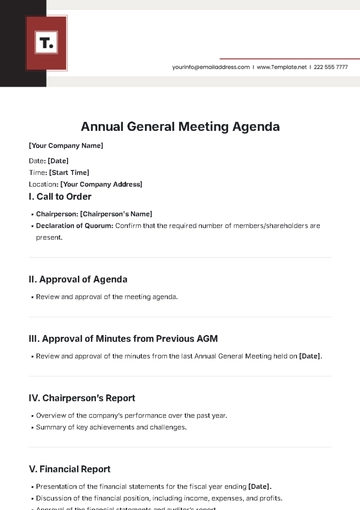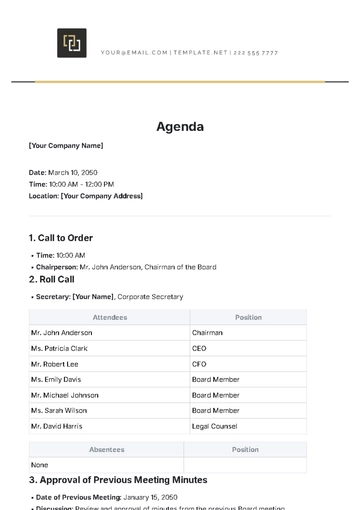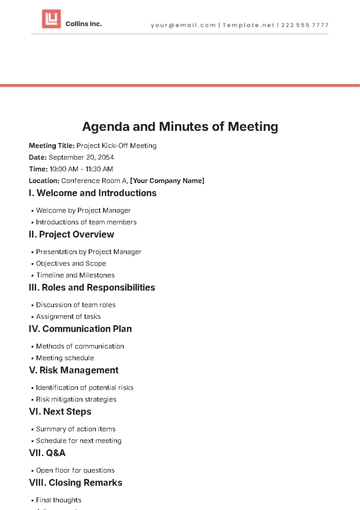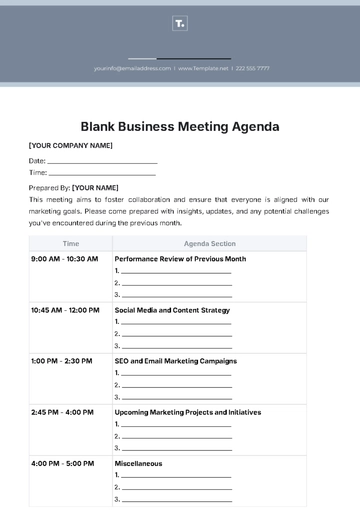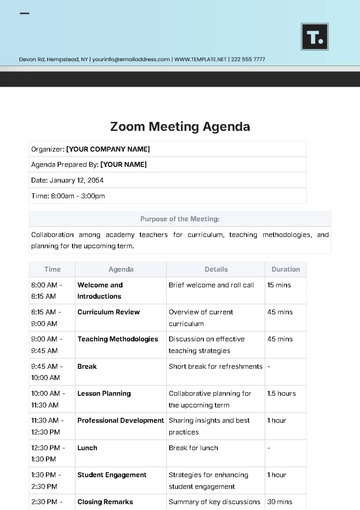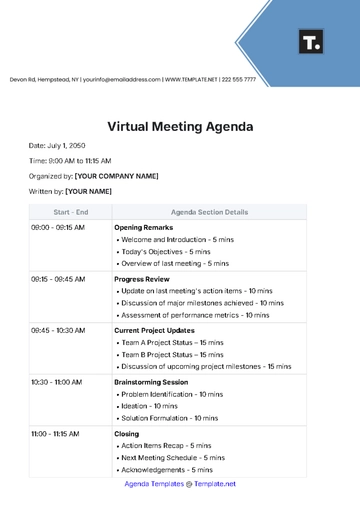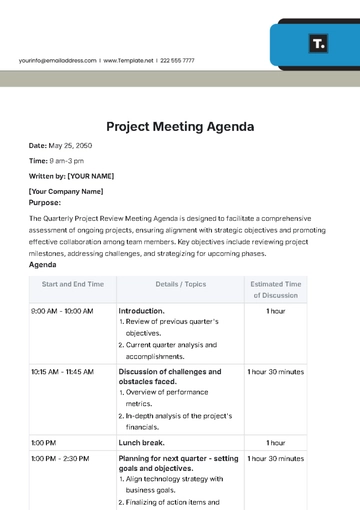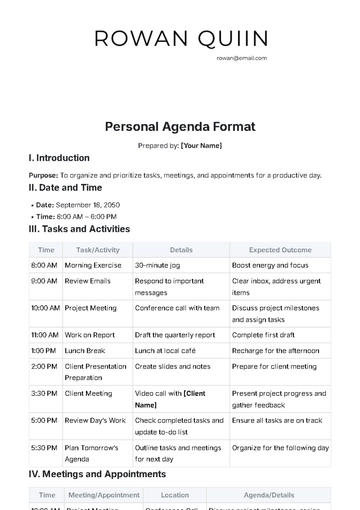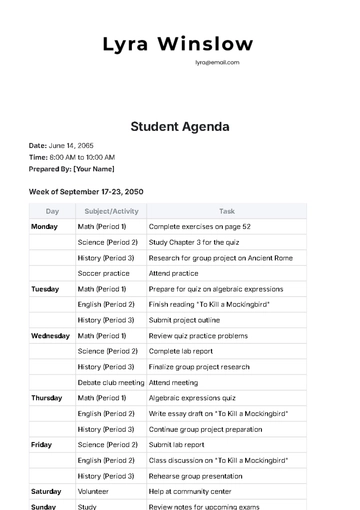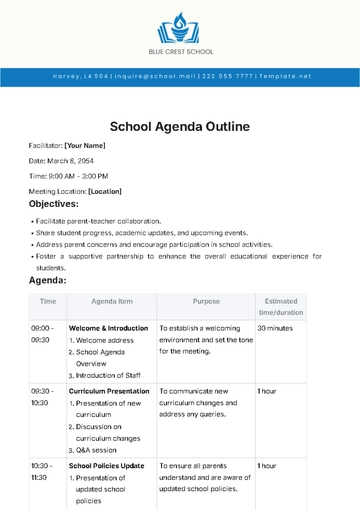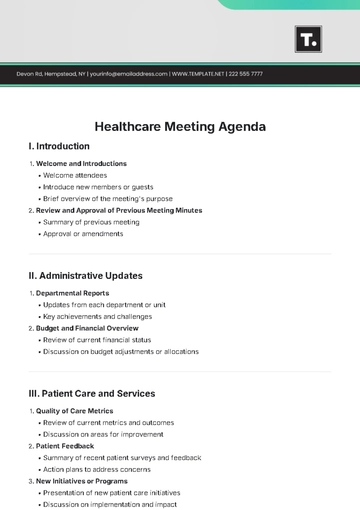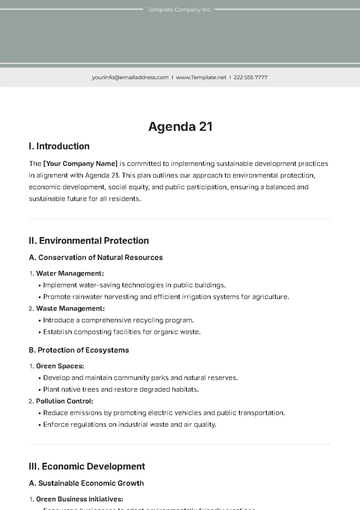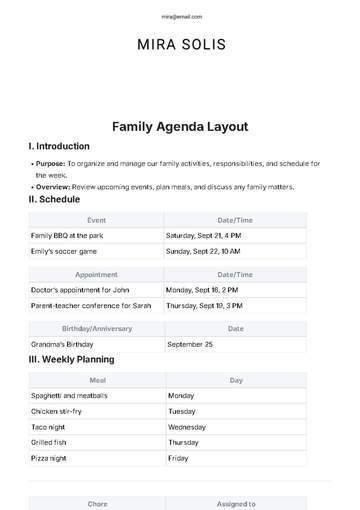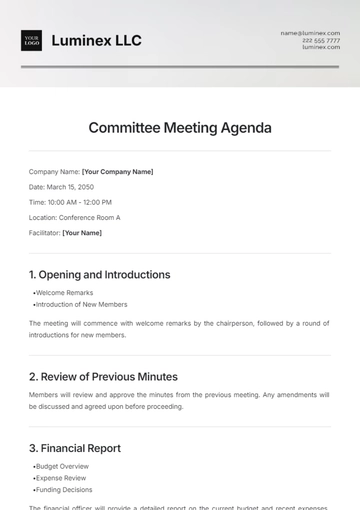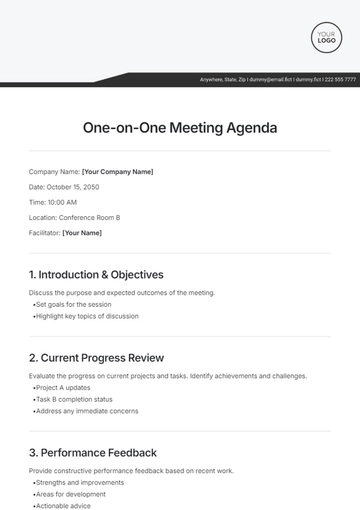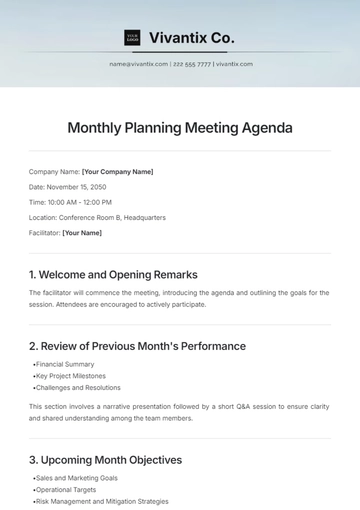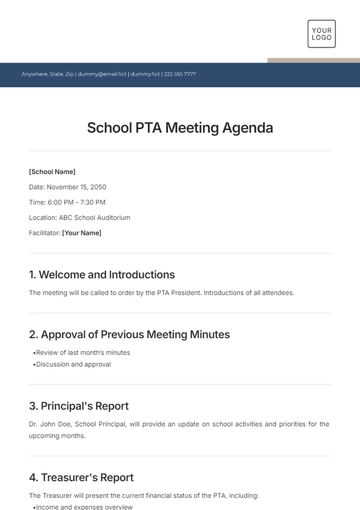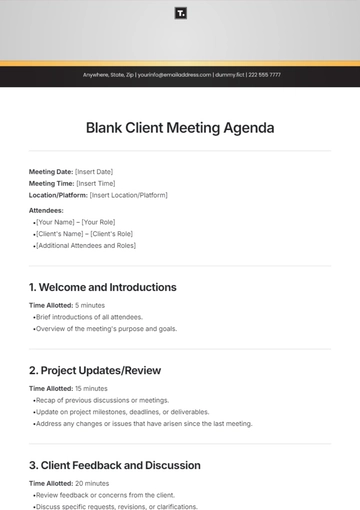Free Sales Presentation Agenda Outline
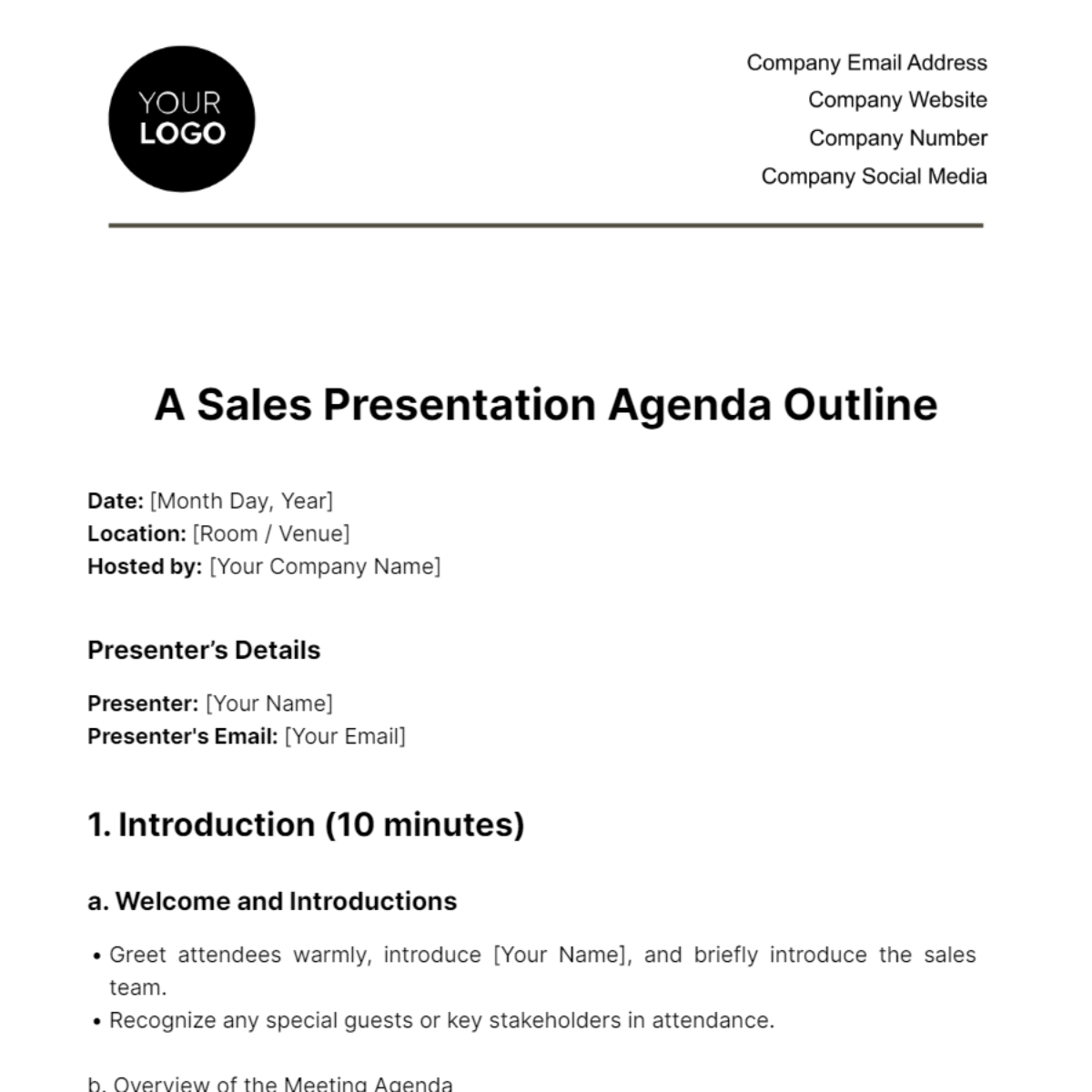
Date: [Month Day, Year]
Location: [Room / Venue]
Hosted by: [Your Company Name]
Presenter’s Details
Presenter: [Your Name]
Presenter's Email: [Your Email]
1. Introduction (10 minutes)
a. Welcome and Introductions
Greet attendees warmly, introduce [Your Name], and briefly introduce the sales team.
Recognize any special guests or key stakeholders in attendance.
b. Overview of the Meeting Agenda
Explain the agenda's structure, highlighting key sections and their significance.
Mention the expected duration for each segment to manage time efficiently.
2. Company Overview (15 minutes)
a. Brief History of [Your Company Name]
Narrate the founding story, major growth milestones, and the evolution of the company.
Mention notable founders and their initial vision.
b. Mission and Vision Statements
Present the company’s mission to solve specific market problems.
Outline the vision for future growth and industry impact.
c. Key Achievements and Milestones
Highlight significant achievements like reaching a sales milestone or entering new markets.
Showcase any awards or recognitions received.
3. Product/Service Presentation (30 minutes)
a. Detailed Description of Products/Services
Describe key features, benefits, and applications of the flagship product.
Use visual aids or slides for a clearer understanding.
b. Unique Selling Points
Discuss what sets the product apart, like an innovative feature or superior customer service.
Compare briefly with general market offerings.
c. Live Demonstrations (if applicable)
Conduct a real-time demo or walkthrough of the product, highlighting its ease of use.
4. Market Analysis and Opportunities (20 minutes)
a. Industry Trends
Discuss current market trends, future predictions, and the company's role in shaping the industry.
b. Target Market Demographics and Psychographics
Define the ideal customer profile, including demographics like age and location, and psychographics like values and interests.
c. Competitive Analysis
Present a comparison with main competitors, focusing on strengths and areas of improvement.
5. Customer Success Stories (15 minutes)
a. Case Studies
Share a success story of a notable client, detailing the problem faced and the solution provided.
b. Testimonials
Show video clips or quotes from satisfied customers.
c. Impact Metrics
Present data on customer satisfaction, return on investment, or market penetration achieved.
6. Pricing and Packages (15 minutes)
a. Overview of Pricing Structures
Explain different pricing tiers or models, emphasizing value for money.
b. Package Options
Detail package offerings, customizations, and suitability for different customer segments.
c. Discount and Promotion Plans
Announce any ongoing promotions, discounts for early sign-ups, or loyalty benefits.
7. Q&A Session (20 minutes)
a. Open Floor for Questions
Invite attendees to ask questions, ensuring a dynamic and interactive session.
b. Additional Clarifications
Offer in-depth explanations as needed and guide the sales team for detailed discussions.
8. Closing Remarks (5 minutes)
a. Summary of Key Points
Recap the main highlights and the unique value proposition of the product/service.
b. Next Steps and Follow-Up Procedures
Guide on how to initiate business engagement, mention follow-up communication plans.
9. Networking and Refreshments (30 minutes)
a. Opportunity for One-on-One Discussions
Encourage personal discussions, allowing attendees to interact with team members.
b. Exchange of Business Cards
Facilitate the exchange of contact information, fostering future business opportunities.
Notes:
Please ensure to arrive [10] minutes before the start of the presentation.
Presentation slides and additional materials will be emailed post-session.
- 100% Customizable, free editor
- Access 1 Million+ Templates, photo’s & graphics
- Download or share as a template
- Click and replace photos, graphics, text, backgrounds
- Resize, crop, AI write & more
- Access advanced editor
Structure your pitch impeccably with the Sales Presentation Agenda Outline Template from Template.net. Prioritize key topics, maintain flow, and engage listeners from start to finish. Adopt this template to craft compelling, organized presentations. Guide your audience seamlessly through every pivotal point. Never miss the chance to download high-quality templates if you sign up today.
